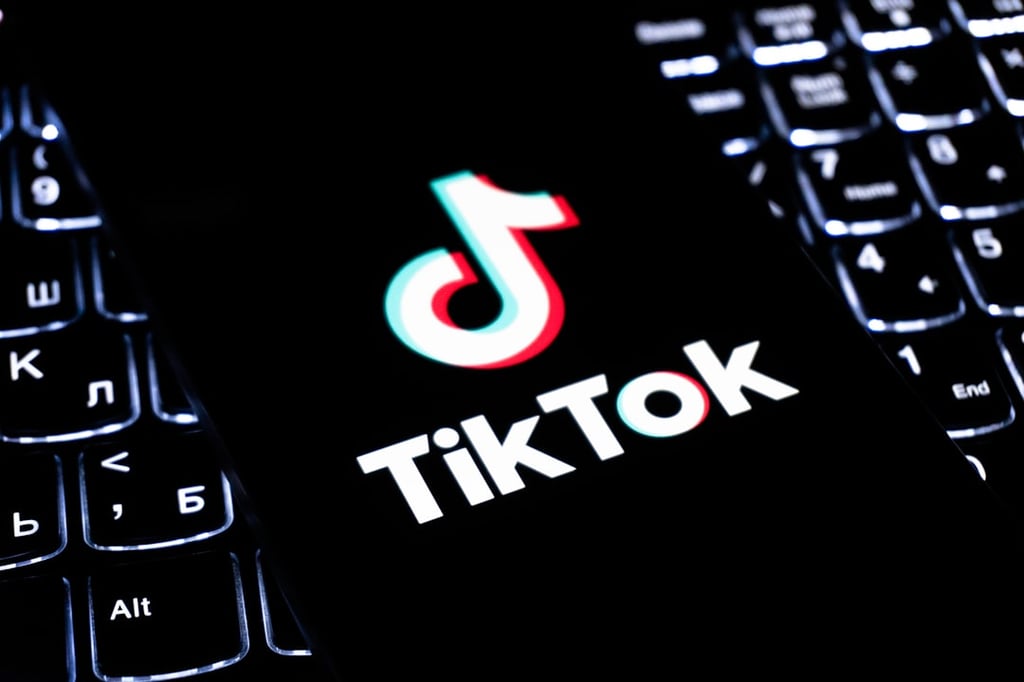Everybody’s raving about Apple’s new virtual assistant, called Siri, and for good reason.
The New York Times’ David Pogue called Siri “crazy good, transformative, category-redefining” and “unbelievable.”
The Wall Street Journal’s Walt Mossberg wrote that Siri “has to be tried to be believed.”
Siri represents a massive breakthrough in consumer-friendly artificial intelligence (A.I.). Apple’s Siri is the product and technology that will make A.I. and virtual assistants mainstream in the same way that the original iPhone mainstreamed touch interfaces.
Friday, when Siri first becomes available on the iPhone 4s, we enter an entirely new phase of personal computing, one that has been depicted in countless sci-fi books and movies: We talk to the computer, and the computer goes and does things for us and talks back to us in a human-like voice.
So buy an iPhone 4s, if you’re so inclined. And enjoy it. But don’t get used to it. Eventually, you’ll fire Siri and hire Google as your all-purpose A.I. personal assistant. Here’s why.
It’s all about data
The biggest problem tackled by Siri is the A.I. part. Understanding random, colloquial human speech, placing input in context, and taking action on user requests — these are very hard problems that Siri does better than anything on the market.
Siri is better than Google Voice Actions for Android, for example, a comparable and also impressive technology that launched in August of 2010. Siri recognizes better, responds better and is able to take more actions on behalf of the user. It’s also integrated more completely into the iPhone and its applications and services than Voice Actions is on Android phones.
But don’t let this temporary superiority lead you astray. The A.I. wars have just begun. And Google will ultimately prevail.
In the future, more people will find things out by talking to their virtual assistant than “Googling it.” And that’s why Google’s survival as a company depends upon transforming its Search service into the core data set for A.I. virtual assistants.
Siri, in short, is a frontal assault on Google’s core business — advertiser supported search.
But eventually, human-like A.I. will be commonplace. Google, Microsoft and others will develop increasingly better A.I. Other companies will build A.I. and license it promiscuously.
In other words, Siri’s most impressive feats will become a banality within a year or two. Excitement about what Siri can do will be replaced by frustration about what Siri cannot do.
For example, the Siri of today can’t do anything with the following requests: “What should I buy my niece for her birthday?,” “Show me that web site about GPS dog collars I was looking at last week,” and “who should I hire as marketing manager?”
More importantly, Siri won’t be able to take the initiative by saying things like: “You told Paul you’d respond by October, so here’s a gentle reminder,” “I think you might want to have your car serviced,” or “I want to recommend a new book to you.”
These actions require data. And Google already has it.
Google already knows who your niece is and what her interests are. They know your web browsing history and what marketing people in your area are both looking for work and highly recommended. Google knows what you say on email, where you go and what you like to read.
But the collection of data is only one of Google’s unmatched strengths. The company is also very good at doing useful things with data — including predicting things. Let me give you one small example.
A few years ago, Google wanted to minimize “brain drain” — losing employees to rival companies. So they created an algorithm based on data about performance reviews, pay raises, promotion histories and other HR type data, and were able to predict which of their employees were most likely to quit — and when. The system enables them to intervene before losing staff.
No major consumer-facing company in the world is as good as Google at turning massive data sets into meaningful information, including predictions. It’s in their DNA.
Another core competency of Google’s is learning via user behavior. Here’s just one very cool example. You know those CAPTCHA things that demand that you prove you’re human and not some spambot? Google acquired one years ago that was developed at Carnegie Mellon University. Called reCAPTCHA, the service performs double duty. It verifies that logins are being done by humans, and it also crowd-sources scanned words.
For years, Google has been scanning every page of millions of books, newspapers and magazines. Their optical character recognition (OCR), the technology that looks at a picture of a word and figures out what the word is, works great.
However, questionable words are crowd-sourced by reCAPTCHA. When you use reCAPTCHA, one word is there to test your humanity, and other is there as a small, unpaid job you’re doing for Google. If a large majority of users agree on what the scanned word is, the OCR system integrates that knowledge into the text from the scanned book. It’s pure genius.
If you think about it, the reCAPTCHA system isn’t all that different from how Google improves Search algorithms. They evaluate which links people click on after searching, and also how long it takes people to click. From this and other data, they judge their own results and can make tweaks in their algorithms to improve the quality of search.
Now imagine this crowd-sourced learning ability applied to a virtual assistant. Google will apply knowledge gained by millions of users to understand any accent, or to take the proper action when users request something.
For example, let’s say ten thousand users ask their A.I. assistant “What’s up?” and after getting the wrong response, get more specific and say something like: “Please tell me what’s important in my email and calendar.” It’s easy to imagine Google’s algorithm quickly learning that when most people say “What’s up?,” they really want priority email and appointments.
Over time, and across millions of such interactions, you can see Google’s A.I. system improving constantly. Their system will evolve, until you can just talk to your virtual assistant like you would a real one, and it will understand everything you say.
In addition to having better data than Apple, and better engineering around learning and predicting from massive data sets, Google also owns more services useful to A.I. interaction.
Take Google Translate, for example. You could say to your Google personal assistant: “Translate for me between English and French.” You could then have a conversation with a French-speaking person, with your phone as interpreter.
This exists now, for the most part, but with A.I. thrown into the mix, the phone could retrieve cultural references for you in the same way that a human translator might: Question – “What’s that French word for Gypsies that also starts with G?” Answer – “I think you mean ‘Gitans.’”
In other words, it will not only translate directly, but also facilitate meaningful conversations, rather than merely helping you find a bathroom.
In fact, the services that Google’s A.I. will be able to conjure up borders on the spectacular: Google Earth, Latitude and Maps; Google News and Reader; Google Wallet, Checkout and Shopping; Google+; Google Alerts; Google Image Search; Google Books and Scholar, for crying out loud; Google Trends; and many others.
Ultimately the best A.I. virtual assistant is the one that knows everything, both personal and general, and can do anything.
Presently, Apple has to license and partner for knowledge services like Wolfram-Alpha and Wikipedia, and for agency services like Open Table. But anything Apple can rent, Google can rent, too.
In addition, Google actually owns the worlds best sources of knowledge, both personal and general, and also services that let your assistant buy things, communicate with people and generally act in the world on your behalf.
For now, the world of virtual assistant A.I. belongs to Apple and Siri. But don’t get use to it. Eventually, Apple will prove no match for Google’s unbeatable resources in this field.
But don’t worry, fanboys. Google’s A.I. will probably work on your iPhone, too.
-
Huawei’s AI Update: Things Are Moving Faster Than We Think
FEATURE | By Rob Enderle,
December 04, 2020
-
Keeping Machine Learning Algorithms Honest in the ‘Ethics-First’ Era
ARTIFICIAL INTELLIGENCE | By Guest Author,
November 18, 2020
-
Key Trends in Chatbots and RPA
FEATURE | By Guest Author,
November 10, 2020
-
Top 10 AIOps Companies
FEATURE | By Samuel Greengard,
November 05, 2020
-
What is Text Analysis?
ARTIFICIAL INTELLIGENCE | By Guest Author,
November 02, 2020
-
How Intel’s Work With Autonomous Cars Could Redefine General Purpose AI
ARTIFICIAL INTELLIGENCE | By Rob Enderle,
October 29, 2020
-
Dell Technologies World: Weaving Together Human And Machine Interaction For AI And Robotics
ARTIFICIAL INTELLIGENCE | By Rob Enderle,
October 23, 2020
-
The Super Moderator, or How IBM Project Debater Could Save Social Media
FEATURE | By Rob Enderle,
October 16, 2020
-
Top 10 Chatbot Platforms
FEATURE | By Cynthia Harvey,
October 07, 2020
-
Finding a Career Path in AI
ARTIFICIAL INTELLIGENCE | By Guest Author,
October 05, 2020
-
CIOs Discuss the Promise of AI and Data Science
FEATURE | By Guest Author,
September 25, 2020
-
Microsoft Is Building An AI Product That Could Predict The Future
FEATURE | By Rob Enderle,
September 25, 2020
-
Top 10 Machine Learning Companies 2020
FEATURE | By Cynthia Harvey,
September 22, 2020
-
NVIDIA and ARM: Massively Changing The AI Landscape
ARTIFICIAL INTELLIGENCE | By Rob Enderle,
September 18, 2020
-
Continuous Intelligence: Expert Discussion [Video and Podcast]
ARTIFICIAL INTELLIGENCE | By James Maguire,
September 14, 2020
-
Artificial Intelligence: Governance and Ethics [Video]
ARTIFICIAL INTELLIGENCE | By James Maguire,
September 13, 2020
-
IBM Watson At The US Open: Showcasing The Power Of A Mature Enterprise-Class AI
FEATURE | By Rob Enderle,
September 11, 2020
-
Artificial Intelligence: Perception vs. Reality
FEATURE | By James Maguire,
September 09, 2020
-
Anticipating The Coming Wave Of AI Enhanced PCs
FEATURE | By Rob Enderle,
September 05, 2020
-
The Critical Nature Of IBM’s NLP (Natural Language Processing) Effort
ARTIFICIAL INTELLIGENCE | By Rob Enderle,
August 14, 2020
SEE ALL
ARTICLES







